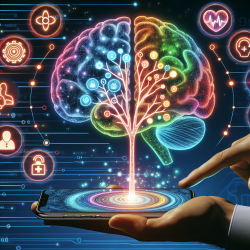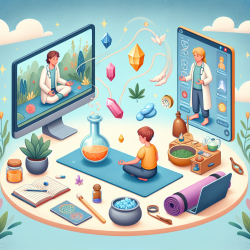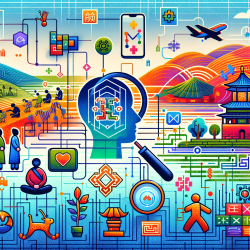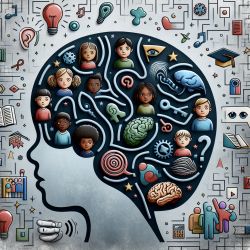The development of digital biomarkers through mobile apps has ushered in a new era of personalized mental health treatment and diagnosis. This groundbreaking approach is transforming the landscape of psychiatry by leveraging data from human-smartphone interactions to create precise and continuous assessments of mental activities. As a practitioner, you can significantly enhance your skills by understanding and implementing the outcomes of this research.
The Power of Mobile Apps in Precision Psychiatry
Mobile apps have emerged as powerful tools in the field of precision psychiatry. Their ubiquity and accessibility make them ideal for collecting both passive and active data, overcoming the limitations of traditional research methods. For instance, mobile apps can continuously monitor user behavior, providing real-time data that is free from recall bias.
- Passive Data Collection: Includes GPS traces, phone call logs, and other data collected without direct user involvement.
- Active Data Collection: Involves user participation through surveys and questionnaires.
These methods allow for a more accurate reflection of users' everyday behaviors and mental states, offering invaluable insights into their mental health.
Implementing Digital Biomarkers in Practice
As a practitioner, integrating digital biomarkers into your practice can revolutionize how you assess and treat mental health conditions. Here are some practical steps:
- Utilize Mobile Apps: Encourage patients to use apps that track their mental health and behaviors. These apps can provide real-time data that can be analyzed to tailor personalized treatment plans.
- Monitor Sleep Patterns: Apps like "Rhythm" can automatically estimate sleep times and evaluate circadian patterns, offering insights into sleep-related mental health issues.
- Track Work Hours: Apps such as "Staff Hours" can monitor work patterns and help identify occupational burnout and overwork, providing data to support work-life balance interventions.
Challenges and Ethical Considerations
While the benefits of digital biomarkers are immense, there are also challenges and ethical considerations to keep in mind:
- Data Privacy: Ensure that all collected data is anonymized and securely stored to protect patient privacy.
- App Credibility: Validate the credibility of the apps you recommend by reading reviews and understanding their privacy policies.
- Balancing Data Volume and Power Consumption: Choose apps that offer a good balance between data collection and battery usage to ensure long-term usability.
By addressing these challenges, you can effectively integrate digital biomarkers into your practice, providing more personalized and accurate mental health care.
Encouraging Further Research
The field of digital biomarkers is still evolving, and continuous research is crucial for its advancement. As a practitioner, you can contribute to this growing body of knowledge by:
- Participating in Studies: Collaborate with researchers to provide data and insights from your practice.
- Staying Informed: Keep up with the latest research through conferences, publications, and webinars.
- Sharing Findings: Publish your observations and case studies to contribute to the broader understanding of digital biomarkers in mental health.
To read the original research paper, please follow this link: Development of Digital Biomarkers of Mental Illness via Mobile Apps for Personalized Treatment and Diagnosis.










